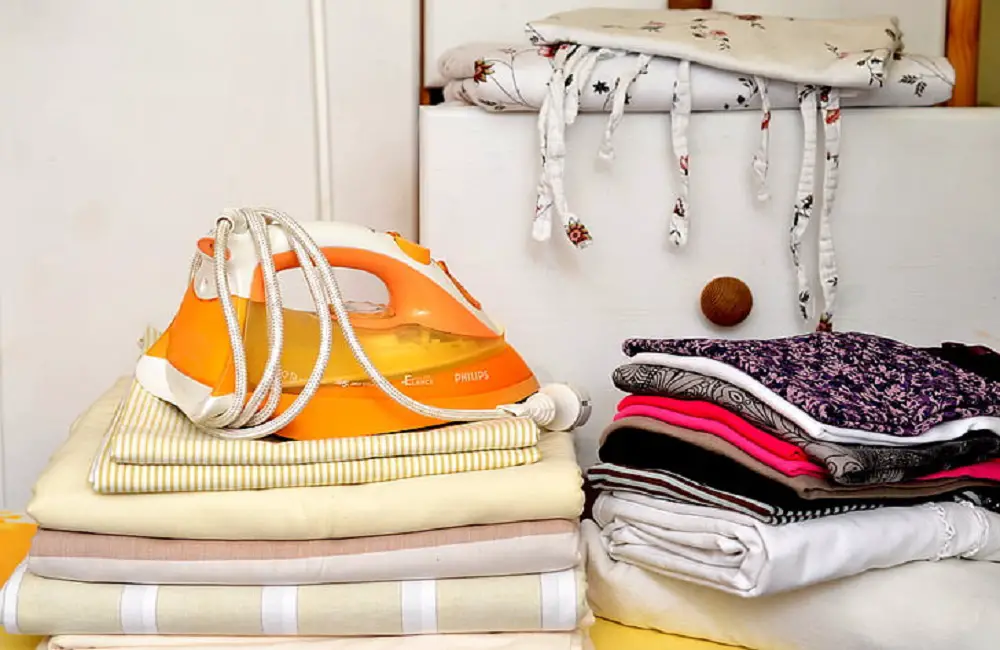It can be confusing and annoying to discover ants crawling all over your clothing. It’s not only annoying, but it may also cause you to doubt the upkeep and cleanliness of your house.
In order to treat the existing infestation and avoid more ones in the future, it is essential to understand why ants might penetrate your clothing. Let’s examine the causes of this problem and workable fixes to prevent ants from living in your clothing.
6 Reasons My Clothes Have Ants
1. Ants Are Attracted to Food Residue
Food residue is one of the main causes of ant infestations on your clothing. Ants are always searching for food, and they have a keen sense of smell. Ants may become drawn to the greasy or sweet stains on your clothing if you inadvertently spill food or liquids on them and fail to adequately clean them.
2. Sweat and Body Odor
Another factor that can draw ants to your clothes is sweat. Perspiration contains salt and other organic compounds that can attract certain types of ants. After a workout or a long day, your clothes might be saturated with sweat, which can act as a magnet for ants seeking nutrition.
3. Stored Clothes
Clothes that are stored for long periods without being washed can also attract ants. Over time, even clean clothes can accumulate dust, dead skin cells, and other particles that ants might find appealing. Additionally, if your storage area is prone to moisture or has any food sources nearby, it can become a haven for ants.
4. Ants Seeking Shelter
Ants will occasionally infiltrate garments only to find a place to hide. Ants can make their nests in the dark, generally quiet spaces provided by clothes, especially those stored in closets or drawers. This is particularly prevalent in areas that experience harsh weather, as ants may seek cover indoors.
5. Presence of Other Pests
Your clothes might also attract ants if there are other pests involved. For instance, if there are bedbugs, lice, or other insects present in your clothes, ants might be drawn to them as a food source. Ants often scavenge on other insects, and their presence can indirectly attract ants to your wardrobe.
6. Outdoor to Indoor Transition
When you go from outside to indoor activities, ants may find their way onto your clothing. For example, ants may attach themselves to your clothing and enter your home if you have been gardening, hiking, or having a picnic. Once inside, they may investigate further and discover something intriguing in your clothing.
Solutions to Keep Ants Away from Your Clothes
Now that we have identified the potential reasons why ants might invade your clothes, it’s important to implement effective solutions to prevent and address this issue.
1. Maintain Cleanliness
Keeping your clothes clean is one of the easiest and most effective ways to keep ants away from them. Make sure you routinely wash your clothing, particularly following meals or activities that result in perspiration. Clean up spills and stains as soon as possible, especially those involving greasy or sugary materials.
2. Proper Storage
Proper storage of clothes can make a significant difference. Use airtight containers or vacuum-sealed bags to store clothes that you don’t wear frequently. This will not only keep ants out but also protect your clothes from dust and moisture. Additionally, ensure that your storage areas are clean and free of any food sources.
3. Use Ant Repellents
Using ant repellents can help create a barrier that deters ants from invading your clothes. Natural repellents like essential oils (such as peppermint, tea tree, or eucalyptus) can be effective. Simply add a few drops to a cotton ball and place it in your closet or drawers. Alternatively, you can use commercially available ant repellent sprays.
4. Seal Entry Points
Prevent ants from entering your home by sealing potential entry points. Inspect your home for cracks, gaps, and holes that ants might use to gain access. Pay particular attention to areas around windows, doors, and the foundation of your home. Use caulk or weatherstripping to seal these entry points.
5. Control Moisture Levels
Since ants are drawn to moisture, regulating the humidity in your house can be beneficial. In humid places, use dehumidifiers, and make sure closets and storage areas have enough ventilation. Ants and other pests will find your house less appealing as a result.
6. Regular Pest Control
Think about starting a consistent pest control program. This could entail using do-it-yourself techniques like putting up ant baits and traps or hiring a pest control company. Ants and other pests can be kept out of your house with routine inspections and treatments.
7. Keep Food Away from Clothing Areas
Don’t eat or store food next to your clothing. Ants are drawn to spills and even tiny crumbs. If you must eat in a space used for storing clothes, make sure to clean up right after. By doing this, you can lessen the chance that ants will be drawn to your clothing.
8. Address Other Pest Issues
Take quick action to solve any other pest problems you may have that you believe are luring ants to your clothing. Make sure to check your house thoroughly for any insects, such as lice or bedbugs. Take care of any infestations you discover to get rid of the potential food source for ants.
Conclusion
Although discovering ants in your clothing can be disconcerting, you can prevent them from staying in your wardrobe by being aware of their causes and taking preventative action.
An atmosphere that is less appealing to ants can be created by keeping things clean, storing clothing correctly, applying repellents, closing access points, regulating moisture, doing routine pest treatment, keeping food away from locations where clothing is stored, and taking care of other pest problems. By taking these precautions, you’ll safeguard your clothing while also keeping your house cleaner and more hygienic.

